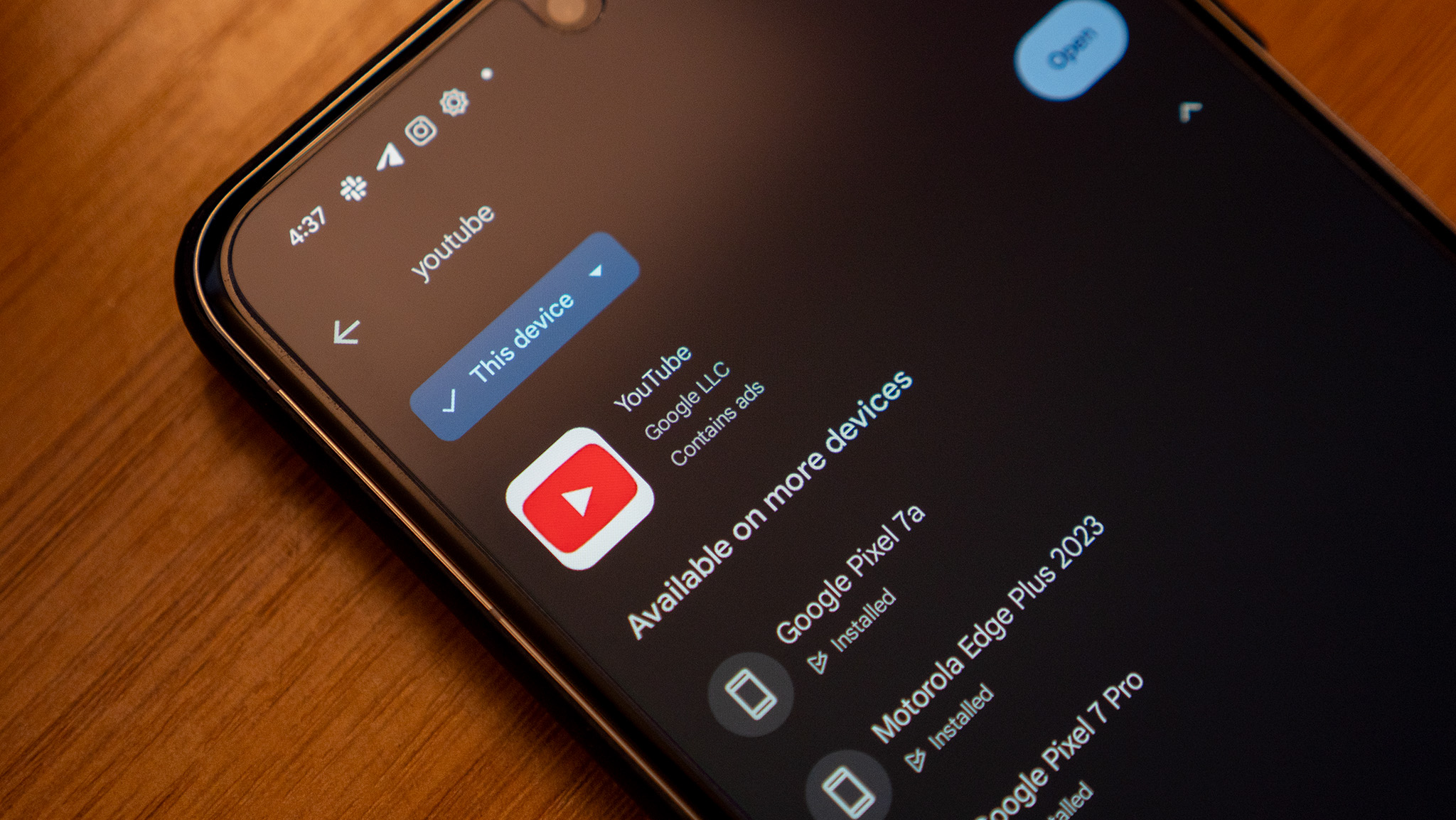Fitbit Sense vs. Fitbit Ionic: Is it time to upgrade?
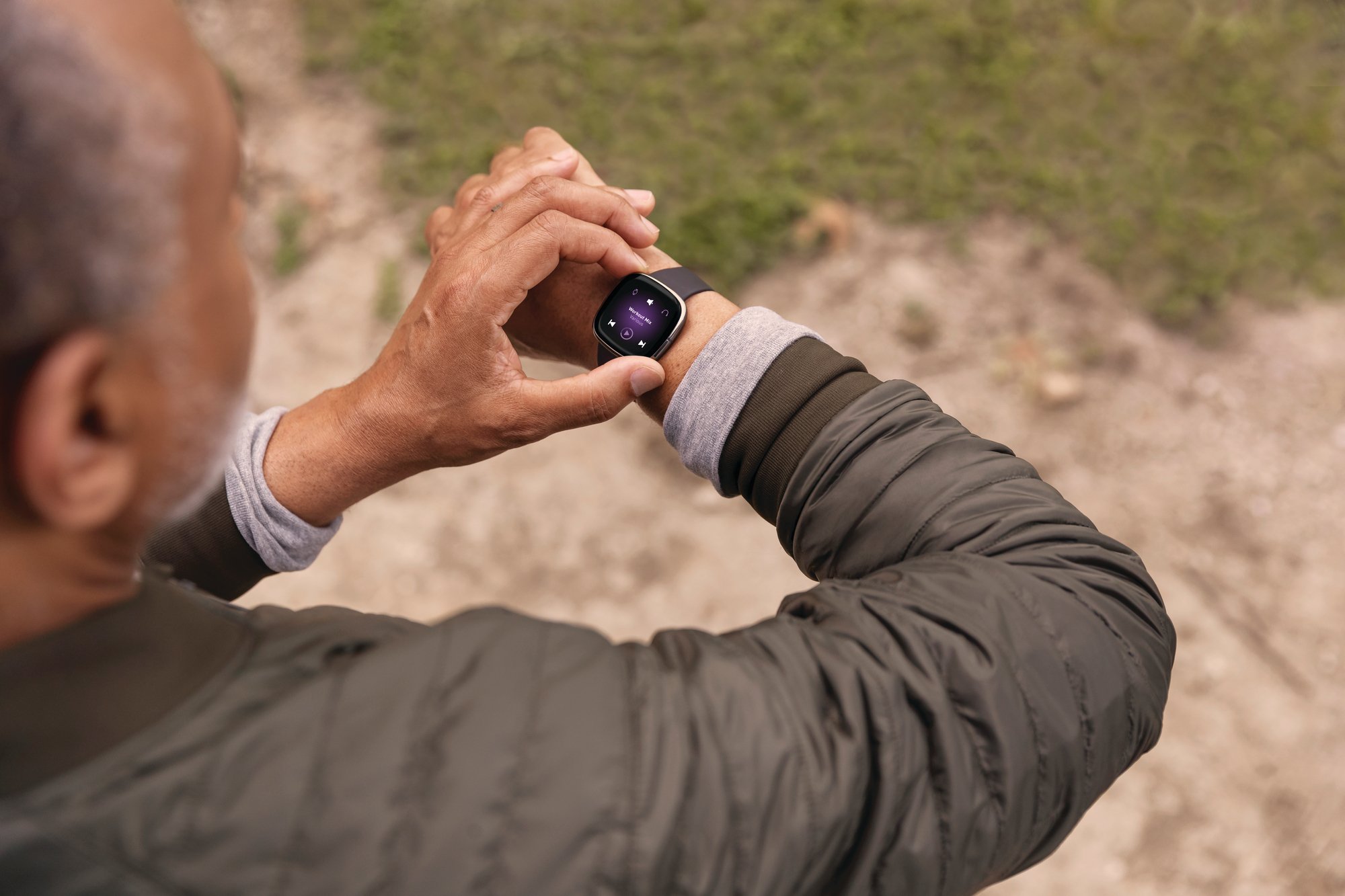
Get the latest news from Android Central, your trusted companion in the world of Android
You are now subscribed
Your newsletter sign-up was successful
Fitbit Sense
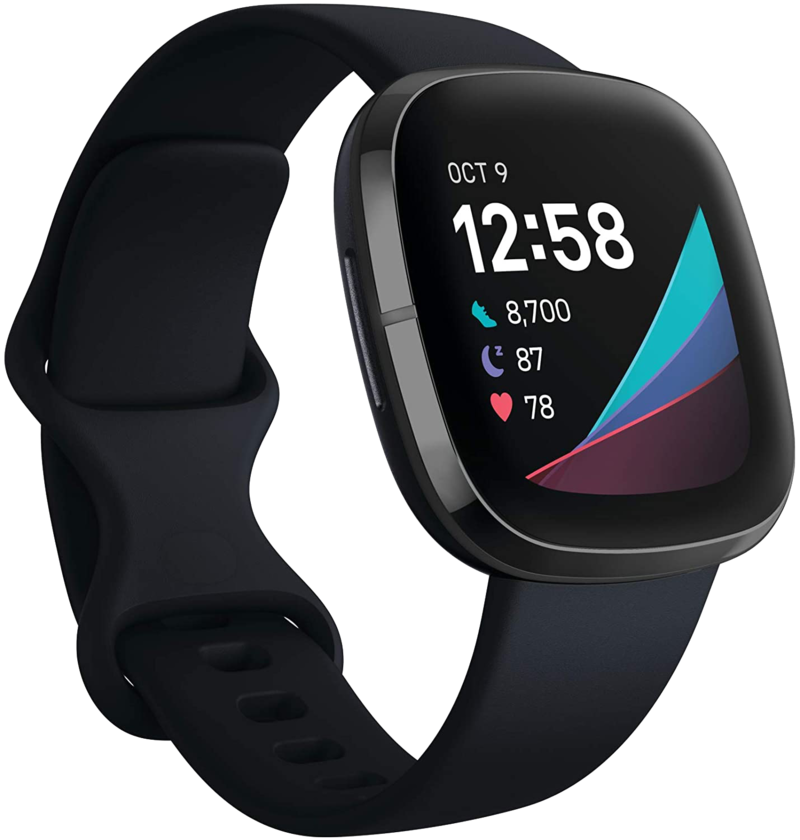
If you don't mind spending more to get a better overview of your health, your money will be well-spent on the Fitbit Sense. You'll enjoy the new ECG and EDA sensors, improved heart rate technology, more voice assistant options, and more features.
Fitbit Sense
Reasons to buy
Reasons to avoid
Fitbit Ionic
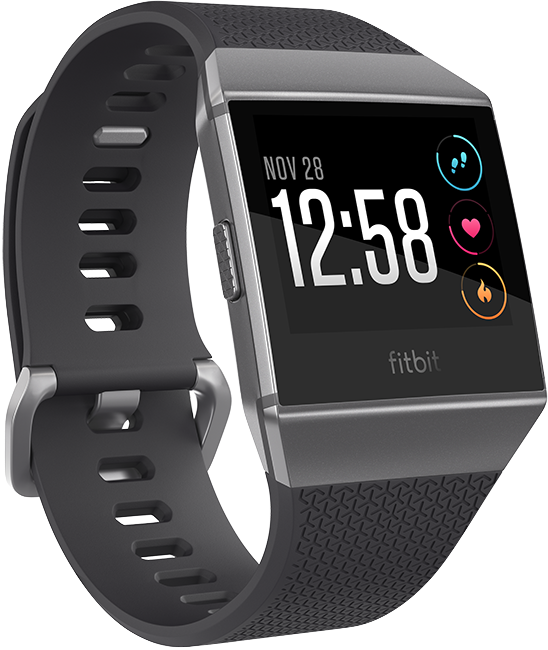
It's not the newest model out there, but the discounted price might be enough to sway you. The Ionic still offers some unbeatable features compared to other watches at this price point. You get week-long battery life, onboard GPS, heart-rate monitoring, Fitbit Pay, and more.
Fitbit Ionic
Reasons to buy
Reasons to avoid
Fitbit has come a long way in recent years, and the upcoming release of the new health-focused Sense smartwatch marks a turning point in wearable technology. You'll have everything you need to get a detailed view of your health right on your wrist. It's packed with the usual fitness features along with some other notable improvements.
While the Fitbit Ionic might be a few years old now, there's a reason that it remained a favorite for so long. For a while, it was the only Fitbit smartwatch with built-in GPS. Today, it's available at a discounted price and has many desirable features that fitness folks will love.
Fitbit Sense vs. Fitbit Ionic The latest in Fitbit technology
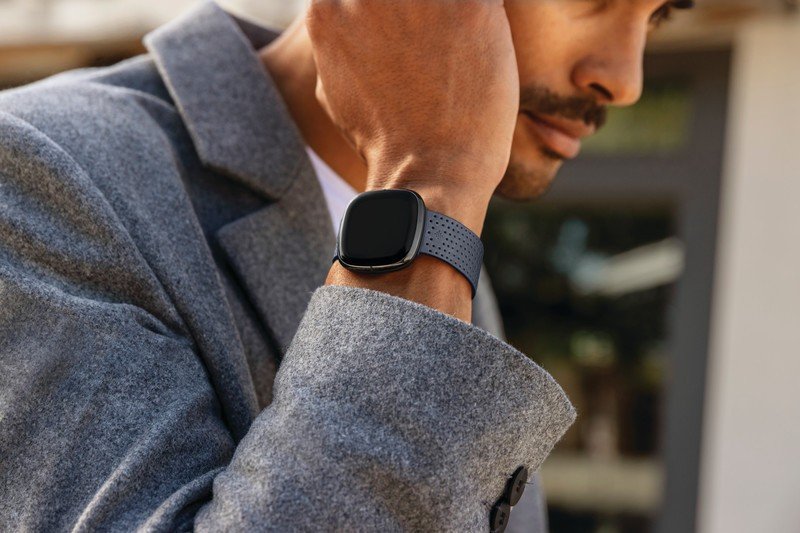
The Fitbit Sense's design takes a page out of the Versa's playbook. As a matter of fact, their designs are nearly identical, with the same squircle design. It just has a few key upgrades. The case on this smartwatch is made of aerospace-grade aluminum and stainless steel. It also has a biosensor core that is meant to provide you with a refined, high-tech appearance.
Both the Fitbit Sense and the Versa 3 are equipped with the company's new infinity bands. You'll enjoy improved comfort and flexibility as well as a quick-release attachment system that makes it easy to change your watch bands. If you used any of the previous Versa smartwatches, you know that this new band system is long overdue. Keep in mind that previous Versa bands won't work with this new system.
| Header Cell - Column 0 | Fitbit Sense | Fitbit Ionic |
|---|---|---|
| Display | 1.58" AMOLED | 1.42" Color LCD |
| Sensors | GPS + GLONASS, ECG, EDA, skin temperature, optical heart rate sensor, gyroscope, 3-axis accelerometer, altimeter, ambient light sensor | GPS, 3-axis accelerometer, 3-axis gyroscope, altimeter, ambient light sensor. |
| Connectivity | Bluetooth, Wi-Fi 802.11 b/g/n | Bluetooth, Wi-Fi 802.11 b/g/n |
| Water resistance | 5ATM | 5ATM |
| Battery life | 6+ days | 7 days |
| ECG & EDA | ✔️ | ❌ |
| Skin temperature | ✔️ | ❌ |
| NFC payments | ✔️ | ✔️ |
| Amazon Alexa & Google Assistant | ✔️ | ❌ |
| Mic/speaker | ✔️ | ❌ |
The most important aspects of the new Fitbit Sense aren't related to the appearance at all. It contains the first electrodermal activity (EDA) sensor on a smartwatch, which measures electrodermal activity responses. You'll access this feature by placing your palm over the face of the watch. It will then detect small electrical changes in your skin's sweat level. This will help you understand how your body reacts to stress.
Get the latest news from Android Central, your trusted companion in the world of Android
Speaking of sensors, it also comes with a skin temperature sensor that can detect changes that could indicate a fever, illness, or new menstrual phase. The Fitbit Sense also meets the increasing demand for an electrocardiogram (ECG) sensor, which analyzes your heart rhythm for signs of atrial fibrillation (AFib). Simply hold your fingers on the corners of the watch, remain still for 30 seconds, and you'll get a reading that can be downloaded and shared with your doctor. This is an excellent feature to have if you have a heart condition or you're at risk of developing one.
The Fitbit Sense has the first electrodermal activity (EDA) sensor on a smartwatch.
You can also look forward to improved heart-rate monitoring thanks to the advanced PurePulse 2.0 technology. One of the company's latest features is Active Zone Minutes, which has been added to the Fitbit Sense as well. It tells you when you've reached your personalized target heart rate zones during an activity. You'll earn Active Zone Minutes for any time you spend in the fat burn, cardio, or peak heart-rate zones. The heart-rate zones are personalized based on your age and fitness level.
The good news is that everything you know and love about the ecosystem is also present on the Fitbit Sense. Users will have access to 24/7 heart-rate monitoring, over 20 goal-based exercise modes, more than six days of battery life, 5 ATM water resistance, activity tracking, sleep monitoring, female health-tracking, Fitbit Pay, and Amazon-Alexa. The company has also added Google Assistant to the mix. The Fitbit Sense comes with a built-in mic/speaker, so you can make Bluetooth calls on your watch and hear voice assistant responses.
Fitbit Sense vs. Fitbit Ionic Keep things simple and affordable
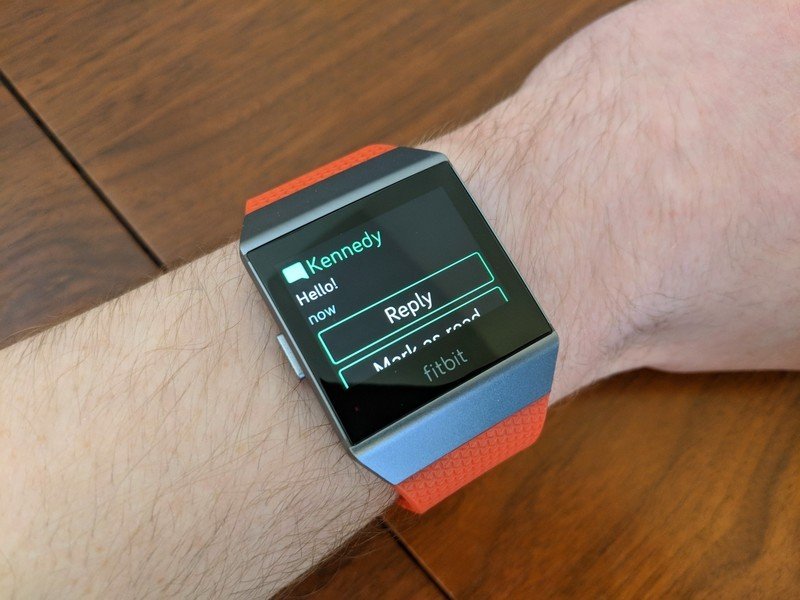
One of the biggest appeals when the Fitbit Ionic first came out was the inclusion of built-in GPS, which is often considered a must-have feature for many users. You also get 5 ATM water resistance, up to seven days of battery life, activity/sleep tracking, and heart-rate monitoring. Other bonus features include smartphone notifications, mobile payments with Fitbit Pay, and music storage.
It's undeniable that the Fitbit Ionic has an eye-catching design.
It's undeniable that the Fitbit Ionic has an eye-catching design. Depending on your preferences, this could be a good or a bad thing. The aluminum case features a slanted, angular design that's sure to stand out from other smartwatches. It's undoubtedly polarizing, so not all users will be a fan of its chunky nature.
While these features may not be quite as advanced as what you'll have on the Fitbit Sense, it will be more than enough for some users out there. Whether you're a beginner in the world of fitness tracking or you don't want to spend a lot of money on a smartwatch, the Fitbit Ionic has a lot to offer at a low price.
Perhaps you've owned the Fitbit Ionic for a while now, and you're ready for an upgrade. If you're attracted to everything the Fitbit Sense brings to the table, including Active Zone Minutes, improved heart-rate monitoring, a mic/speaker, new sensors, and more voice assistant options, then you may just be ready for an upgrade. Due to its age, the Ionic is missing out.
Fitbit Sense vs. Fitbit Ionic Is it time to upgrade?

As you can see, there are plenty of reasons that both of these smartwatches are great picks. If you want a fitness smartwatch with a decent number of perks but you'd like to stick to your budget, you might lean toward the Fitbit Ionic. It has the essentials, including built-in GPS, heart-rate monitoring, activity/sleep tracking, music storage, and Fitbit Pay. Most importantly, it's one of the most affordable options you'll find with this set of features.
Those who want to take their health and fitness tracking to the next level will be better off with the Fitbit Sense. If you don't mind spending a bit more, you'll have premium features with the latest technology. The result is reliable data that gives you a detailed look at your overall well-being. For many users, this is going to be a worthwhile investment.

Courtney Lynch is a freelance writer at Android Central. She's obsessed with all things health, fitness, and music. At any given time, she can be found checking out the latest and greatest gadgets while simultaneously petting her dog and sipping iced coffee.
